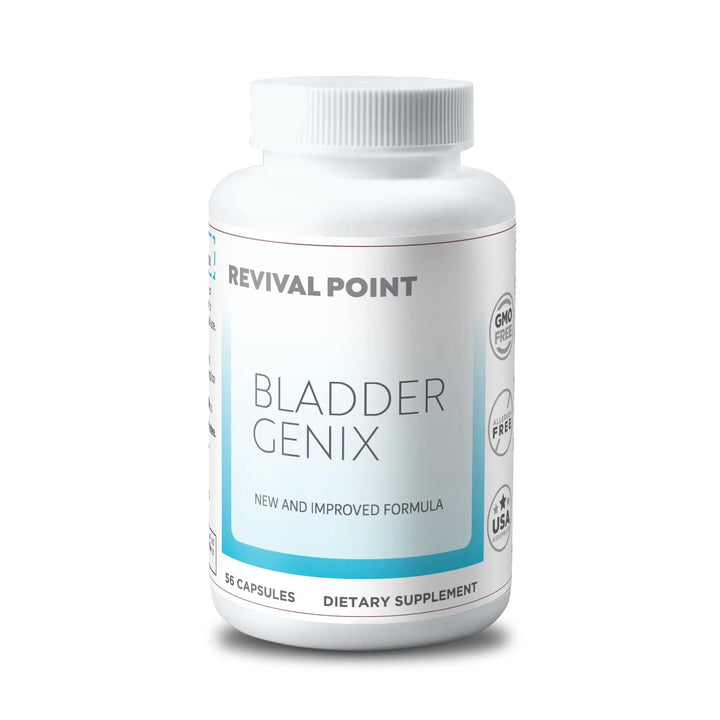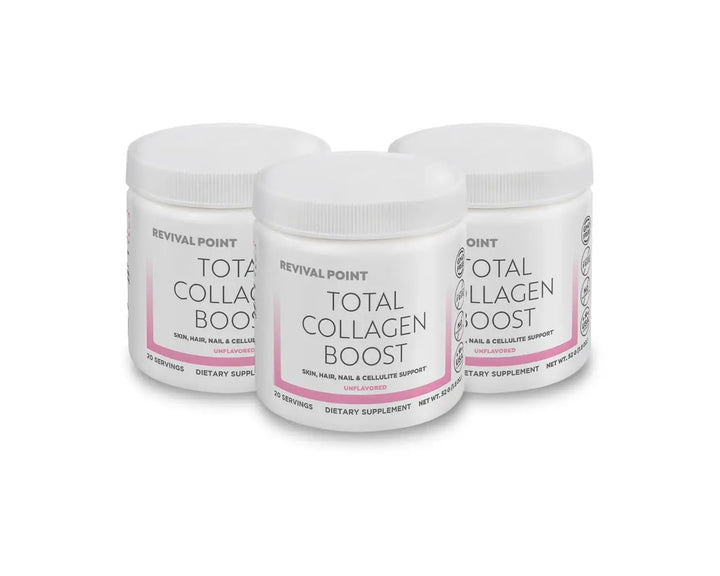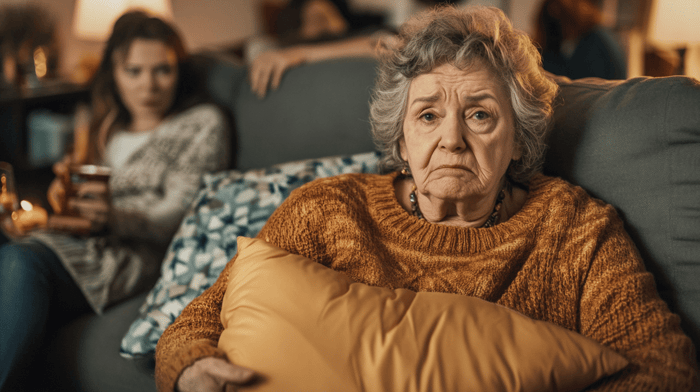Table of Contents
- Understanding Adult Diaper Use
- Practical Steps to Reduce Diaper Dependence
- Lifestyle Adjustments for Diaper Weaning
- Psychological and Emotional Considerations
- Support Networks and Communities
- Alternatives and Replacements for Diapers
- Handling Specific Scenarios
- Maintaining Dignity and Independence
- Stop The Problem at Its Source to Quit Diapers FOR GOOD
Living with adult incontinence can feel overwhelming. So overwhelming that you end up wondering how to stop wearing adult diapers.
I know that wearing adult diapers may seem like a permanent solution, but there are effective ways to reduce or eliminate their use.
Many people can decrease their reliance on adult diapers within 3-6 months through a combination of bladder training exercises, pelvic floor therapy, and lifestyle changes.
Diaper use in adults is often viewed as a long-term necessity, but I've found that treating the underlying causes of incontinence leads to better outcomes than just managing symptoms.
Working with a healthcare provider to develop a personalized plan is an important first step.
Managing fluid intake, strengthening muscles, and maintaining a consistent bathroom schedule can make a huge difference.
I've seen many patients succeed in reducing or stopping their use of protective garments by following these evidence-based strategies. The key is patience and dedication to a comprehensive treatment approach.
BladderGenix For Bladder Control and Urinary Incontinence

$49.00
BladderGenix for Natural Bladder Support Are frequent bathroom trips, sudden urges, or bladder leakage disrupting your life and confidence? BladderGenix® by Revival Point™ offers a powerful, natural solution to help you regain control. Formulated with the clinically studied, proprietary blend, BladderGenix… read more
Understanding Adult Diaper Use
Adult diaper use affects millions of people worldwide and stems from various medical conditions.
I find that proper knowledge of diaper types, understanding root causes, and addressing emotional aspects are key steps toward reducing reliance on these products.
Differentiating Types of Adult Diapers
Adult diapers come in two main categories: disposable and reusable cloth options. Hospital studies show that disposable diapers are more common in medical settings due to convenience.
Disposable Options:
- Pull-up style (similar to underwear)
- Tab-style briefs
- Pads and liners
- Overnight protection varieties
Cloth Options:
- Washable cotton briefs
- Reusable padded underwear
- Waterproof covers
When determining how to stop wearing adult diapers, I recommend choosing based on absorbency needs, comfort level, and daily activities. The right fit makes a big difference in preventing leaks and maintaining dignity.
Identifying the Causes of Incontinence
Incontinence isn't a disease - it's a symptom that can have many causes.
I've found that identifying the specific cause is crucial for treatment.
Common causes include:
- Weak pelvic floor muscles
- Neurological conditions
- Urinary tract infections
- Medication side effects
- Prostate problems in men
- Pregnancy and childbirth effects in women
Medical tests can pinpoint the exact cause. This knowledge helps create an effective treatment plan that may reduce or eliminate the need for diapers.
And if you want to fight the problem at the root cause, we have a great supplement for that too:
BladderGenix For Bladder Control and Urinary Incontinence

$49.00
BladderGenix for Natural Bladder Support Are frequent bathroom trips, sudden urges, or bladder leakage disrupting your life and confidence? BladderGenix® by Revival Point™ offers a powerful, natural solution to help you regain control. Formulated with the clinically studied, proprietary blend, BladderGenix… read more
Addressing the Social Stigma and Shame
Know this first about how to stop wearing adult diapers: Many people feel embarrassed about wearing adult diapers.
I've learned that online communities can provide valuable support and help normalize the experience.
It's important to remember that incontinence is a medical condition, not a personal failing. Talking with healthcare providers, trusted friends, or support groups can help reduce feelings of isolation.
Modern adult diapers are discreet and barely noticeable under clothing. They allow people to maintain active social lives with confidence.
Professional counseling can help process feelings of shame or anxiety about diaper use. Many people successfully manage this condition while leading full, active lives.
Practical Steps to Reduce Diaper Dependence
Taking control of bladder and bowel function requires a structured approach with proper training and protection.
The right combination of exercises, products, and skincare can help reduce reliance on adult diapers.
Implementing a Bladder Training Program
I recommend starting with timed bathroom visits every 2-3 hours during waking hours. This helps retrain the bladder muscles and build control.
Keep a daily bathroom diary to track your patterns. Write down when you go, any accidents, and what you drink throughout the day.
Do pelvic floor exercises (Kegels) 3 times daily:
- Tighten muscles for 5 seconds
- Relax for 5 seconds
- Repeat 10 times per session
Exploring Absorbent Products and Extra Protection
I suggest using a mix of protection levels as you transition away from full diapers:
- Protective underwear
- Absorbent pads
- Male guards or shields
- Bed pads for nighttime
Start with maximum protection and gradually switch to lighter products as control improves. Always carry backup protection when away from home.
Using proper absorbent products helps prevent leaks while working on bladder training.
Employing Protective Skincare Techniques
Clean skin thoroughly with gentle soap and warm water after each episode. Pat dry completely - never rub.
Apply a moisture barrier cream to:
- Protect against wetness
- Prevent rash development
- Soothe irritated skin
Change protective products promptly when wet to avoid skin breakdown when trying to determine how to stop wearing adult diapers. Proper skincare reduces irritation and rash risk while working toward independence.
Use breathable products that allow airflow to keep skin healthy. I recommend checking skin condition daily for any signs of irritation.
Total Collagen Boost

$69.95
Unlock youthful, radiant skin with Total Collagen Boost, the premium collagen supplement designed to transform your beauty from within. Featuring Verisol® bioactive collagen peptides, our formula is scientifically proven to deliver visible results in just 4 weeks. Unlike other collagen… read more
Lifestyle Adjustments for Diaper Weaning
Making successful changes to stop wearing adult diapers requires careful planning and consistent daily habits. These changes will help strengthen bladder control and build confidence.
Modifying Liquid Intake and Diet
I recommend spacing out fluid intake throughout the day rather than drinking large amounts at once. Aim to drink 6-8 cups of water between morning and early evening.
Avoid bladder irritants like caffeine, alcohol, and acidic foods after 6 PM when figuring out how to stop wearing adult diapers. These can trigger urgent bathroom needs at night.
Create a drink schedule: 2-3 cups in the morning, 2-3 cups in the afternoon, and just small sips after dinner. Track liquid intake in a simple log.
Optimizing Toilet Use and Accessibility
Keep paths to the bathroom clear and well-lit. Install grab bars if needed for safe bathroom adjustments.
Set regular bathroom times every 2-3 hours during the day. Don't wait until the urge becomes strong.
Make the toilet area comfortable for longer sits. Use a footstool to improve positioning. Keep reading materials nearby to stay relaxed.
You'll know how to stop wearing adult diapers in no time!
Engaging in Pelvic Floor Exercises
Start with 3 sets of 10 Kegel contractions daily. Hold each squeeze for 5 seconds.
Gradually increase hold times to 10 seconds as muscles get stronger. Mix quick squeezes with longer holds.
Try exercises in different positions:
- Lying down
- Sitting in a chair
- Standing
Practice stopping and starting urine flow during bathroom visits to build control. This helps identify the right muscles.
Combine exercises with daily activities like watching TV or sitting at work to make them routine.
Psychological and Emotional Considerations
Quitting adult diapers requires mental preparation and emotional support. The journey involves working through feelings of shame while building confidence and self-acceptance.
Overcoming Emotional Barriers to Quitting
I know that feelings of shame and embarrassment are common when dealing with incontinence and adult diaper use when figuring out how to stop wearing adult diapers. These emotions can make it harder to take steps toward change.
Building self-acceptance is key. I recommend keeping a journal to track my thoughts and feelings about the transition process. This helps identify negative thought patterns that might hold me back.
Psychological effects of diaper dependence can create emotional challenges during the quitting process. I should be patient with myself and celebrate small victories.
Seeking Professional Help and Counseling
Professional support can make a big difference in successfully transitioning away from adult diapers. A mental health professional can help address underlying anxiety or fears.
Support groups provide valuable connections with others facing similar challenges. I can find local or online groups through medical providers or incontinence organizations.
Working with a therapist helps develop coping strategies for accidents and setbacks if you want to know how to stop wearing adult diapers. They can teach relaxation techniques and build confidence in managing without diapers.
Regular check-ins with counselors or support groups keep me accountable and motivated throughout the process.
Support Networks and Communities
Getting help with incontinence challenges can feel isolating, but connecting with others makes the journey easier. Support groups and online communities offer advice, understanding, and practical tips for managing incontinence.
Finding and Joining Incontinence Support Groups
I recommend checking with local hospitals and medical centers for in-person support groups focused on incontinence management if you're wondering how to stop wearing adult diapers. These meetings let me talk face-to-face with others who understand my situation.
Meeting times are often flexible, with both daytime and evening options. Many groups have medical professionals who attend to answer questions and provide expert guidance.
I've found that the best groups maintain strict confidentiality policies. This creates a safe space where I can openly discuss my concerns without judgment.
Leveraging Online Resources and Forums
Online communities provide 24/7 access to support and information. I can connect with others anonymously while getting practical advice about products and management strategies.
Popular platforms include:
- Facebook support groups
- Reddit communities
- Healthcare organization forums
- Condition-specific websites
I make sure to verify any medical advice with my doctor before making changes to my care routine. The best online spaces have active moderators who maintain respectful discussions and remove inappropriate content.
Many forums offer private messaging features so I can have one-on-one conversations with others who share similar experiences.
Alternatives and Replacements for Diapers
Moving away from adult diapers requires exploring different options that match your specific needs and lifestyle. I can help you understand the most effective alternatives that provide reliable protection while maintaining dignity and comfort.
Exploring Incontinence Products Beyond Diapers
There are plenty of products if you're wondering how to stop wearing adult diapers.
I recommend starting with absorbent underwear alternatives that look and feel more like regular underwear. These provide a more discreet and comfortable option for daily wear.
Reusable cloth pads offer an eco-friendly choice and can be washed and reworn. I find these work well for light to moderate incontinence.
Male guards and shields are smaller alternatives that work for minor leaks. These fit inside regular underwear and are less noticeable than full diapers.
Washable, waterproof underwear has improved significantly in recent years. I've seen many people successfully use these for overnight protection.
Also supplements have come a long way, like this one, developed by a medical doctor for us at Revival Point:
BladderGenix For Bladder Control and Urinary Incontinence

$49.00
BladderGenix for Natural Bladder Support Are frequent bathroom trips, sudden urges, or bladder leakage disrupting your life and confidence? BladderGenix® by Revival Point™ offers a powerful, natural solution to help you regain control. Formulated with the clinically studied, proprietary blend, BladderGenix… read more
When to Consider Medical Devices and Surgery
I want to emphasize that medical interventions can offer long-term solutions for incontinence issues if you want to know how to stop wearing adult diapers. Bladder slings and artificial sphincters are proven options for severe cases.
Nerve stimulation devices can help regain bladder control. These small implants send mild electrical pulses to strengthen muscles.
Before choosing surgery, I recommend discussing pessaries or other removable devices with your doctor. These support devices can help manage incontinence without permanent changes.
Physical therapy and biofeedback training often work well as first steps. I've found these non-invasive approaches can reduce or eliminate the need for diapers in many cases.
Handling Specific Scenarios
Different situations require specific approaches when transitioning away from adult diapers. These strategies can help you manage common challenges while working toward your independence goals.
Addressing Diaper Use in Sexual Relationships
Open communication with your partner is essential.
I recommend having an honest conversation before intimate moments to establish comfort and trust.
Consider wearing specially designed absorbent underwear that looks more like regular underwear during intimate times.
These provide protection while maintaining a more natural appearance.
Plan intimate activities around your bathroom schedule.
Empty your bladder before sexual activity and keep towels nearby for peace of mind.
Coping with Bedwetting as an Adult
I suggest using a waterproof mattress protector and keeping spare sheets nearby for quick changes if needed.
Set an alarm to wake up once during the night to use the bathroom.
This helps train your body to hold urine for longer periods.
Track your fluid intake.
Reduce drinking 2-3 hours before bedtime, but don't restrict fluids during the day.
Consider bladder training exercises like Kegels before bed to strengthen pelvic floor muscles.
Dealing with Leakage and Accidents
Keep an emergency kit with clean clothes, wipes, and disposal bags in your car and workplace.
I recommend wearing dark-colored bottoms and bringing a spare outfit when in new or stressful situations.
Practice regular bathroom scheduling - go every 2-3 hours even if you don't feel the urge.
Quick tips for accident management:
- Keep cleaning supplies readily available
- Wear a thin pad for backup protection
- Know the locations of bathrooms in advance when visiting new places
Maintaining Dignity and Independence
Living with adult diapers can feel challenging, but I want you to know that your dignity matters.
Studies show that maintaining independence while managing incontinence is crucial for emotional wellbeing.
I recommend wearing clothes that make diaper changes easier while still looking stylish.
Dark-colored, loose-fitting pants or skirts can help conceal the diaper outline and boost confidence in public.
Modern adult diapers are designed for discretion, with improved fit and leak protection.
I suggest trying different brands to find the one that gives you the most comfort and security.
Learning to accept incontinence is part of the journey.
I encourage you to be patient with yourself and remember that many people face similar challenges.
Tips for maintaining independence:
- Keep supplies organized and easily accessible
- Carry a small emergency kit when going out
- Learn the locations of accessible bathrooms in places you visit often
- Set reminders for regular bathroom visits
- Practice proper hygiene routines
Remember that working with a healthcare provider can help create a personalized plan for managing incontinence while preserving your independence.
Stop The Problem at Its Source to Quit Diapers FOR GOOD
I hope the above has showed you for sure how to stop wearing adult diapers...
Though if you REALLY want to stop the problem, there's a simple, doctor-approved way to stop the problem at its source.
It has to do with an all-natural solution to improve bladder control and prevent incontinence...
And it has nothing to do with pelvic floor exercises, breath work, or even more "woo woo" things like hypnosis.
All you have to do is watch this doctor's revolutionary video... he'll explain everything.




